(TN&MT) - According to the program of the 41st Session, on January 6, the National Assembly Standing Committee gave opinions on explaining, accepting, and revising the draft Law on Digital Technology Industry . Vice Chairman of the National Assembly Nguyen Duc Hai chaired the Session.
Referring to a number of issues regarding the explanation, reception and revision of the draft Law on Digital Technology Industry, Chairman of the Committee for Science, Technology and Environment (KH,CN&MT) Le Quang Huy emphasized: In the process of receiving and revising the draft Law, the Standing Committee of the Committee for Science, Technology and Environment has coordinated, researched and promptly institutionalized Resolution No. 57-NQ/TW; seriously implemented Regulation No. 178-QD/TW of the Politburo and Official Letters No. 15 and No. 17 of the National Assembly Chairman.
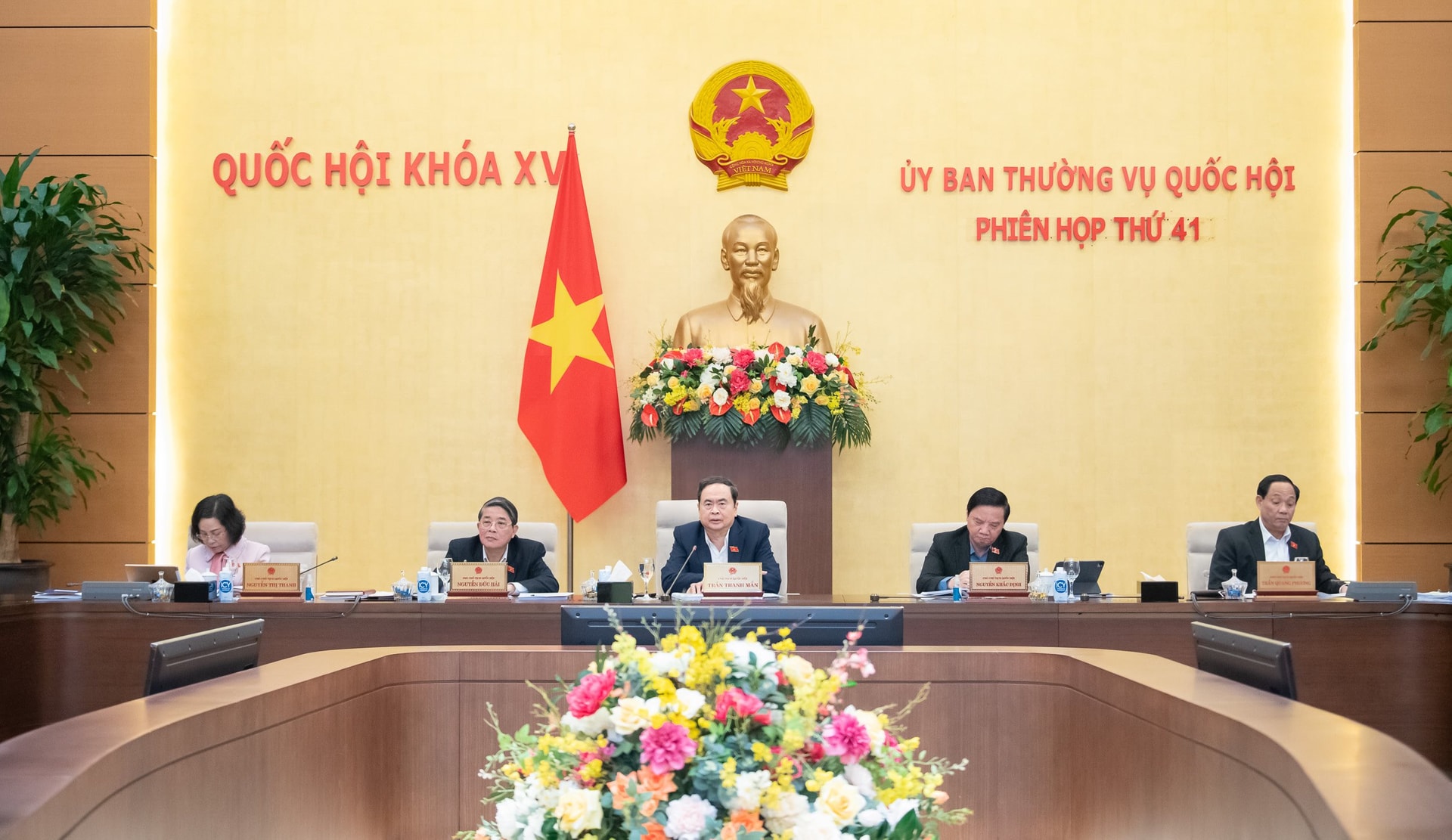
No conflict or contradiction with current regulations
Regarding the content of digital technology and the scope of regulation of the draft Law: There are opinions suggesting clarifying the content of digital technology in the direction of defining the nature instead of listing specific technologies. In response to the opinions of National Assembly deputies, the term "digital technology" in Clause 1, Article 3 is revised, defining the nature, clarifying the content, not listing specific technologies in order to generalize and ensure the stability of the law.
Some opinions suggested reviewing and clarifying the scope of regulation; clearly defining the relationship between this draft Law and other related laws such as the Law on Information Technology, the Law on High Technology, the Law on Electronic Transactions, and the Law on Data. The Standing Committee of the Science, Technology and Environment Committee noted that the dossier of the draft Law on Digital Technology Industry has a Report on reviewing legal documents and international treaties related to the draft Law. In particular, the Review Report mentioned a number of related laws such as the Law on Information Technology, the Law on High Technology, the Law on Electronic Transactions, and the Law on Data. Through research, review, reception, and revision, the draft Law has no conflicts or contradictions with the Law on Information Technology, the Law on High Technology, the Law on Electronic Transactions, and the Law on Data, ensuring the consistency of the legal system.
Assign the Government to regulate the classification, management and provision of digital asset services in accordance with practical conditions.
Regarding digital assets (Articles 13 and 14), Chairman of the Committee for Science, Technology and Environment Le Quang Huy said: Some opinions say that digital assets are a new and rapidly changing issue that requires investment in research and more careful review, and should be assigned to the Government for detailed regulations. Other opinions say that research is needed to supplement regulations on types of digital assets in the draft Law. To have more theoretical and practical basis to complete this content, the Standing Committee of the Committee for Science, Technology and Environment has coordinated to organize work with relevant professional agencies.
Through research, exchange and discussion, the Standing Committee of the Science, Technology and Environment Committee found that digital assets are a new, complex, developing and rapidly changing issue; currently in the world, there is no legal framework that fully regulates this issue and there are still different views. Therefore, accepting the opinions of National Assembly deputies, agreeing on the framework regulations on this issue (Articles 13 and 14) such as the concept, classification of digital assets based on the purpose of use, technology and other criteria; assigning the Government to regulate the classification, authority, content of digital asset management, and provision of digital asset services in accordance with practical conditions.
There are opinions suggesting whether it is necessary to amend the Civil Code, the Law on Electronic Transactions, and the Law on Securities when regulating digital assets in the draft Law. The Standing Committee of the Science, Technology and Environment Committee found that the regulations on digital assets in the draft Law, after being absorbed and revised, do not overlap or conflict with current laws; there is no need to amend the Civil Code, the Law on Electronic Transactions, and the Law on Securities.
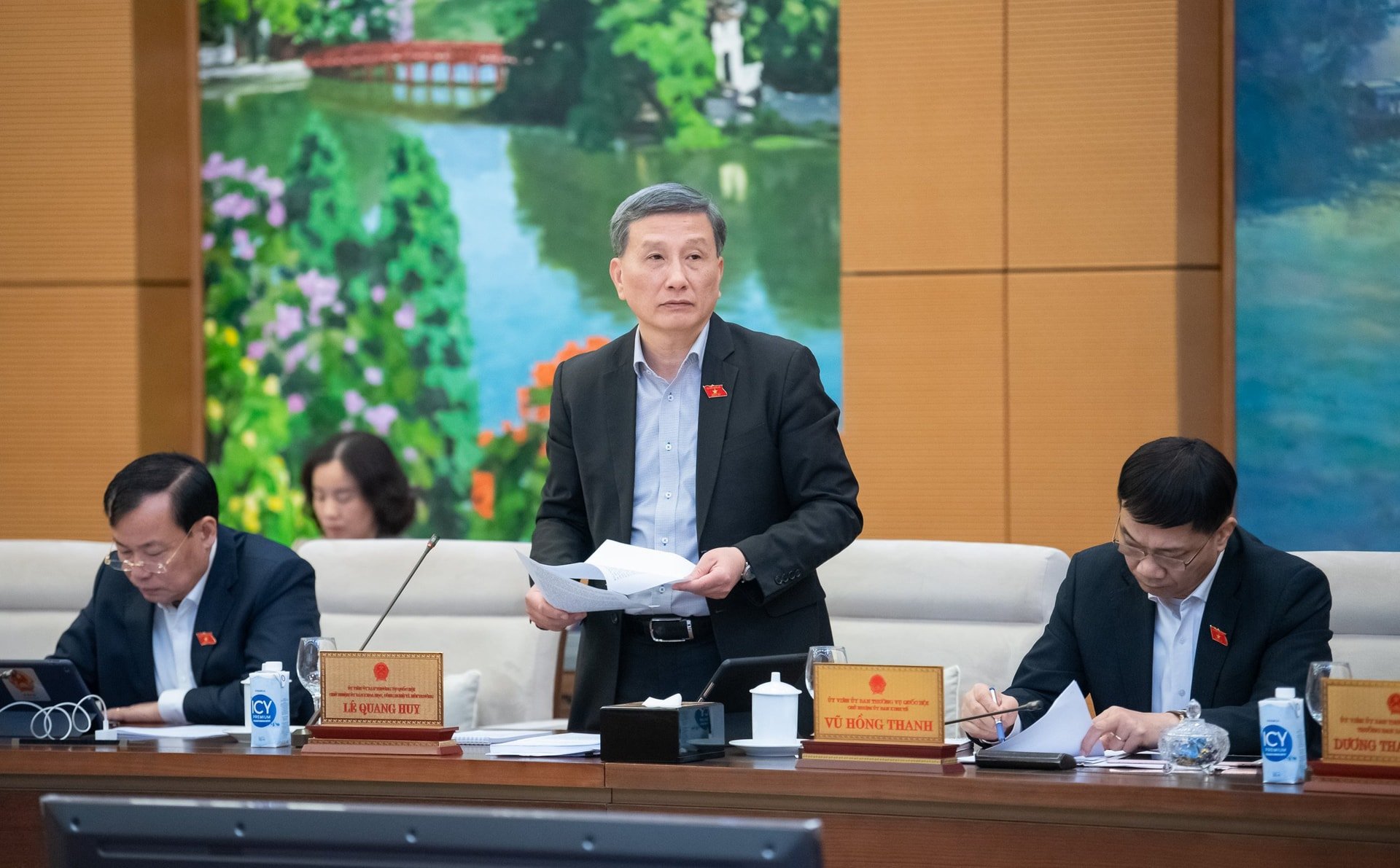
Regarding artificial intelligence (Articles 54 and 55): There are opinions suggesting clearly defining the criteria for artificial intelligence systems with high risks and large impact, adding regulations on risk limitation and risk management principles; other opinions suggest adding regulations assigning the Government to provide guidance on risk management issues. The Standing Committee of the Science, Technology and Environment Committee agrees on the viewpoint of developing regulations on artificial intelligence management in the draft Law based on the principle of risk management while encouraging development, taking people as the center. This management principle is built on the basis of selective research of international experience. Incorporating the opinions of National Assembly deputies, the draft Law stipulates: Management of artificial intelligence systems with high risks and large impact systems; Products created by artificial intelligence systems must have clear identification marks.
Regarding the criteria for determining high-risk artificial intelligence systems with large impact, the Standing Committee of the Science, Technology and Environment Committee said that, according to the European Union Artificial Intelligence Act, the list of high-risk artificial intelligence systems is determined based on the level of impact on health, safety, rights and legitimate interests of organizations and individuals. Incorporating the opinions of National Assembly deputies, the draft Law has added this content (Article 54), stipulating basic criteria and assigning the Government to specify the classification, authority, management content of artificial intelligence systems with high impact and risk, responsibilities, and exemptions from responsibilities of relevant organizations and individuals to ensure flexibility in management and operation.
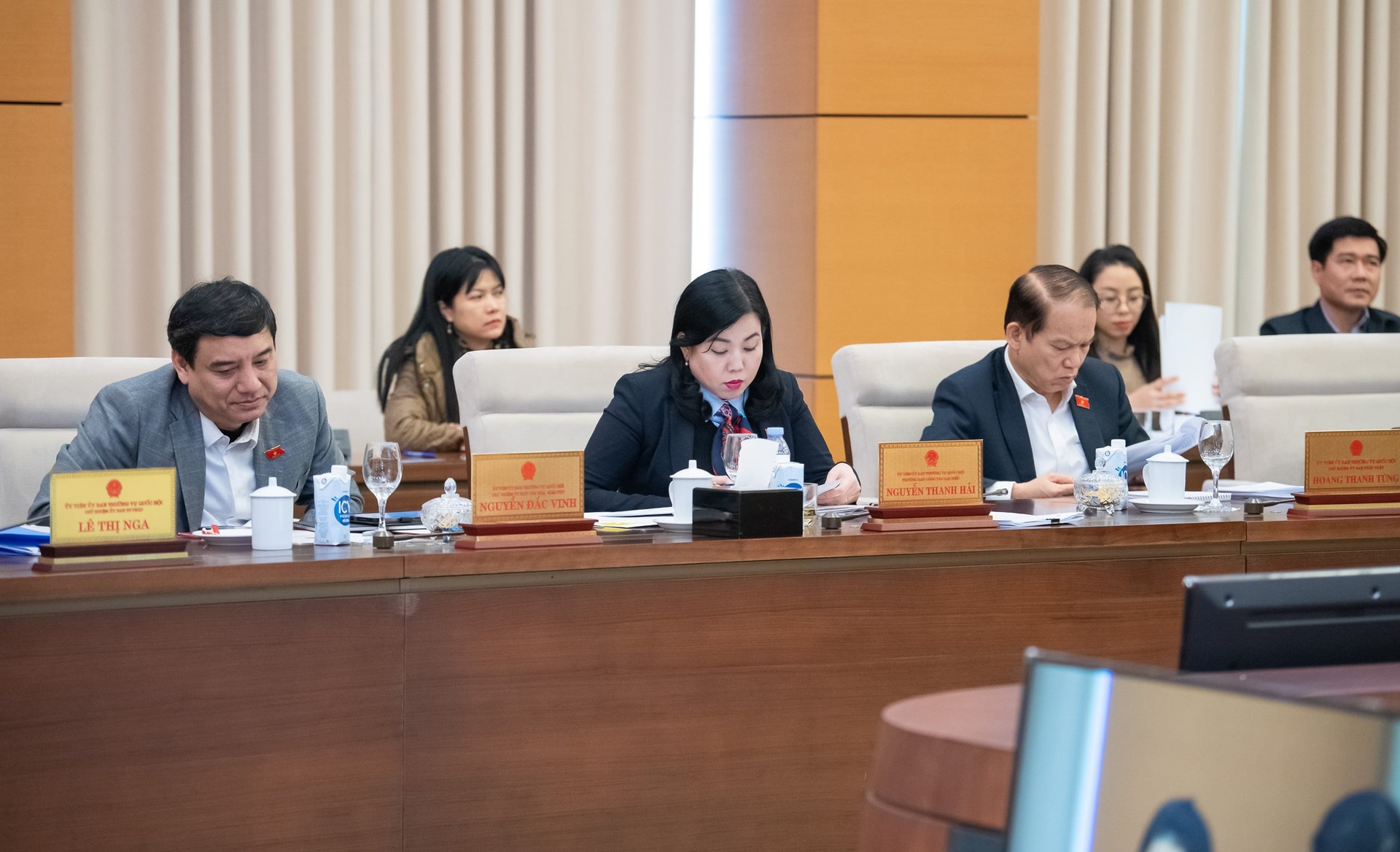
There are suggestions to more clearly regulate the labeling of digital technology products created by artificial intelligence. Regarding the regulation on labeling of digital technology products created by artificial intelligence systems (Article 55), the Standing Committee of the Science, Technology and Environment Committee found that the main objective of this regulation is to create identification marks (not labels on regular products) to help users identify products of artificial intelligence systems in order to behave appropriately. Incorporating the opinions of National Assembly deputies, the draft Law has: revised Clause 1, Article 55 to stipulate that products created by artificial intelligence systems must have clear identification marks and assigned the specialized management ministry to regulate identification marks; added Point d, Clause 2, Article 56 to stipulate the responsibility of the supplier to clearly show identification marks on products created by artificial intelligence systems; Eliminate the provisions in Clause 2, Article 55 related to labeling processes and procedures to ensure that no administrative procedures arise, reduce the burden on businesses and people, and comply with the laws of many countries.
In addition to the above issues, the Standing Committee of the Science, Technology and Environment Committee has coordinated with relevant agencies to research and absorb many comments from National Assembly Deputies, re-draft the writing style, and arrange the layout of the draft Law to be more scientific and reasonable.
Ensuring feasibility, controlling risks and developing fields suitable to Vietnam's conditions
At the Session, members of the National Assembly Standing Committee agreed with the contents mentioned in the draft Law on Digital Technology Industry and requested the Committee on Science, Technology and Environment to coordinate with relevant agencies to continue reviewing to ensure that the opinions of National Assembly deputies, the opinions of the National Assembly Standing Committee at the Session and in the Conclusion Notice No. 4388 dated October 14, 2024 are fully and convincingly received or explained; continue to review to fully institutionalize the Party's policies. In particular, Resolution 57 of the Politburo, while meeting the requirements set out when amending the Law, ensures the quality of the Law project when submitted to the National Assembly, demonstrating the breakthrough nature in the field of digital technology.
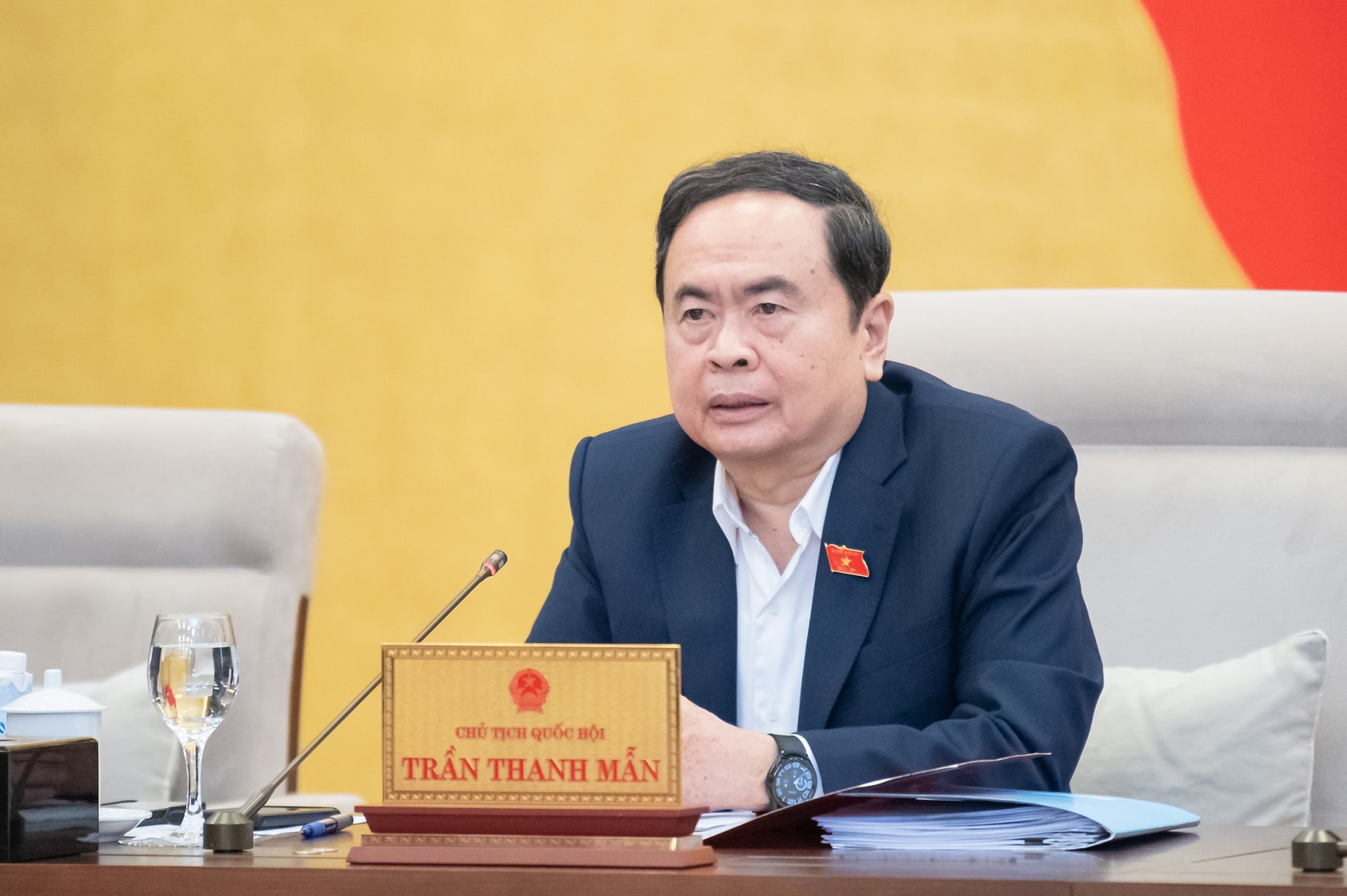
The National Assembly Standing Committee requested agencies to continue reviewing to ensure consistency in the legal system, ensuring the implementation of the Party and National Assembly's innovation policy in law-making; strictly implementing the provisions of Resolution No. 27 and Regulation 178. Note a number of specific issues regarding continuing to review regulations related to investment policies, support and incentives of the State so as not to violate relevant international commitments.
The National Assembly Standing Committee also requested to continue reviewing and perfecting the concepts of word explanations to fully explain, ensure the best, clear meaning, and compliance with domestic and international laws. Pay attention to distinguishing the concepts of information technology and digital technology. Accept and perfect the policy on developing the digital technology industry, regulations on digital assets, controlled testing mechanisms, regulations on the semiconductor industry, regulations on artificial intelligence to ensure feasibility, control risks and develop these fields to meet the country's development requirements in accordance with the Party's policies, in accordance with Vietnam's conditions.
In addition, many opinions in the National Assembly Standing Committee also requested that agencies continue to review the provisions applying the law, implementing provisions, and transitional provisions to ensure feasibility, transparency, ease of understanding, ease of implementation, and no problems when applying. Carefully review and agree with relevant ministries and branches such as the Ministry of Planning and Investment, the Ministry of Construction, and the Ministry of Finance on the provisions amending the Investment Law, the Construction Law, the Tax Law, the State Budget Law, and the Information Technology Law.
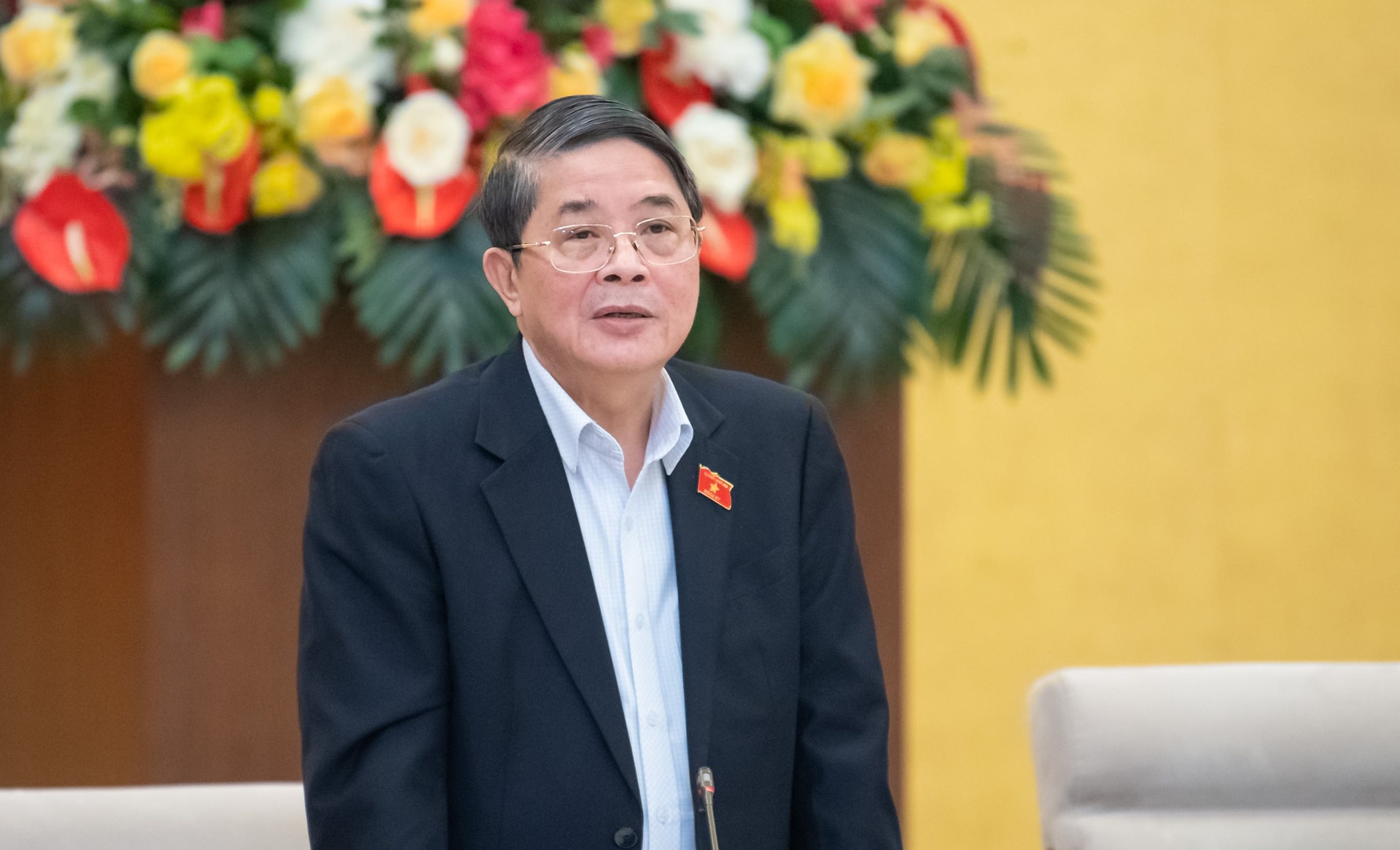
Concluding the session, Vice Chairman of the National Assembly Nguyen Duc Hai said: The National Assembly Standing Committee basically agreed with the direction of explaining, accepting and revising a number of major issues regarding the scope of regulation of the draft Law, the issue of incentives for the semiconductor industry, the application of controlled testing mechanisms, artificial intelligence; and agreed with many contents in the draft Report on explaining, accepting and revising the Digital Technology Industry Law project prepared by the Committee on Science, Technology and Environment.
The Standing Committee of the National Assembly highly appreciates the proactiveness and positivity of the Committee on Science, Technology and Environment, the Ministry of Information and Communications, relevant ministries and agencies in studying, receiving and explaining the opinions of National Assembly deputies at the 8th Session to revise and complete the draft Law. Documents and reports submitted to the Standing Committee need to be fully and thoroughly prepared and updated to ensure timeliness. In addition, members of the Standing Committee of the National Assembly also contributed many specific opinions on the provisions of the law.
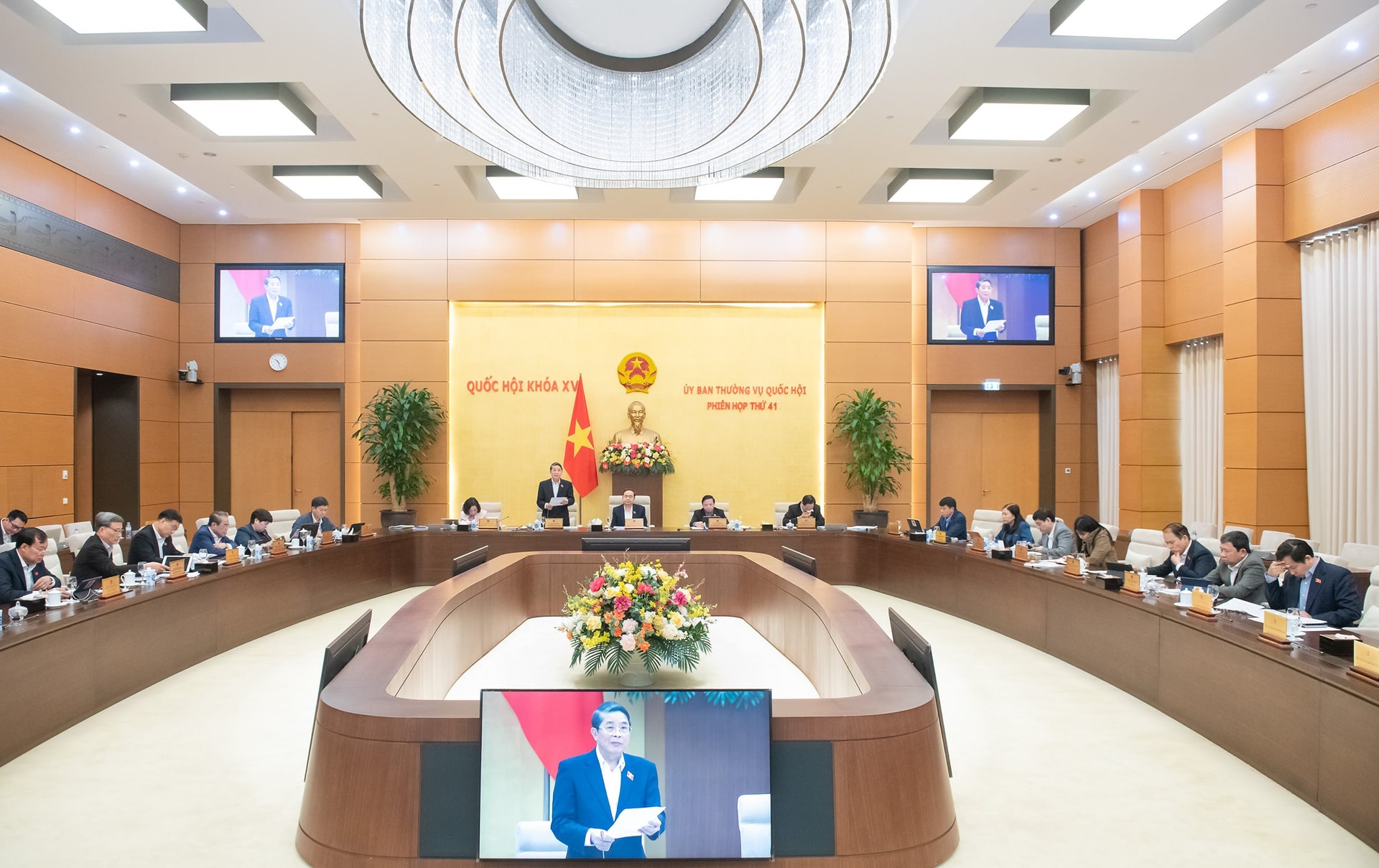
Vice Chairman of the National Assembly Nguyen Duc Hai requested the reviewing agency and the drafting agency to fully absorb and explain these opinions and requested the drafting agency to prepare relevant decrees. The Committee on Science, Technology and Environment shall preside over and coordinate with the Ministry of Information and Communications and relevant agencies to study and absorb the opinions of the National Assembly Standing Committee, complete the draft Law and related documents, carry out the steps of work according to regulations, complete the draft Law dossier to submit to the National Assembly for consideration and decision, and request the Government to direct the drafting agency to closely coordinate with the reviewing agency to complete the report on absorption and explanation in the draft Law.
Source: https://baotainguyenmoitruong.vn/hoan-thien-chinh-sach-cong-nghiep-cong-nghe-so-dap-ung-yeu-cau-phat-trien-cua-dat-nuoc-385372.html



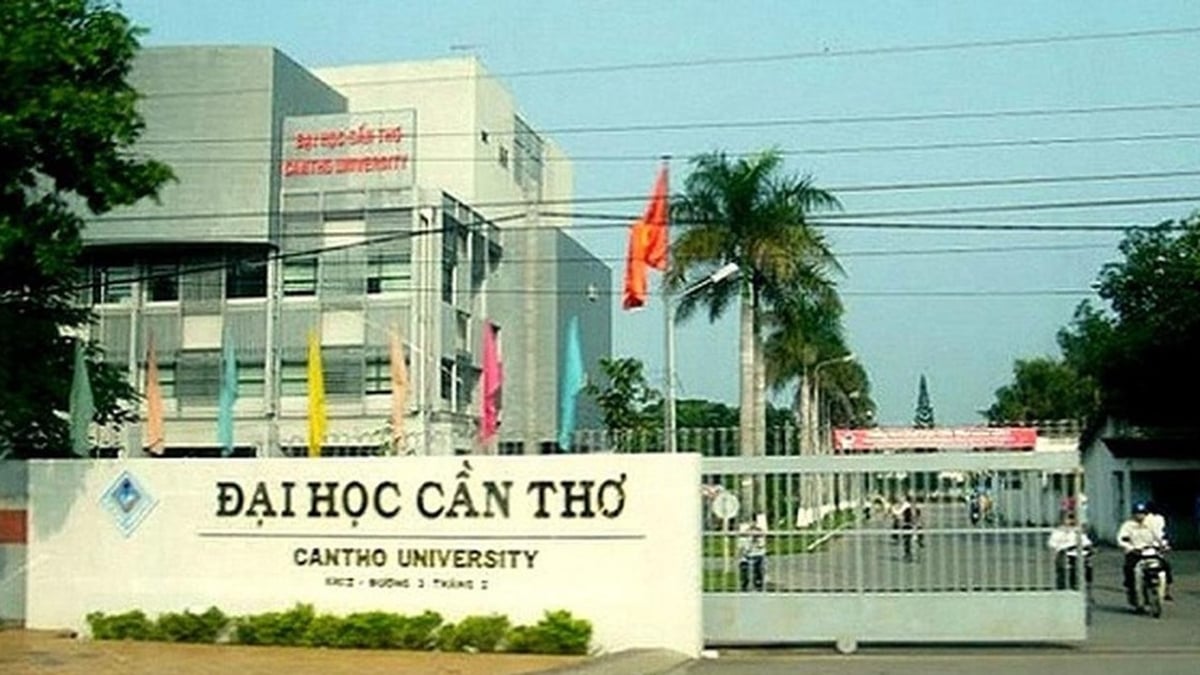

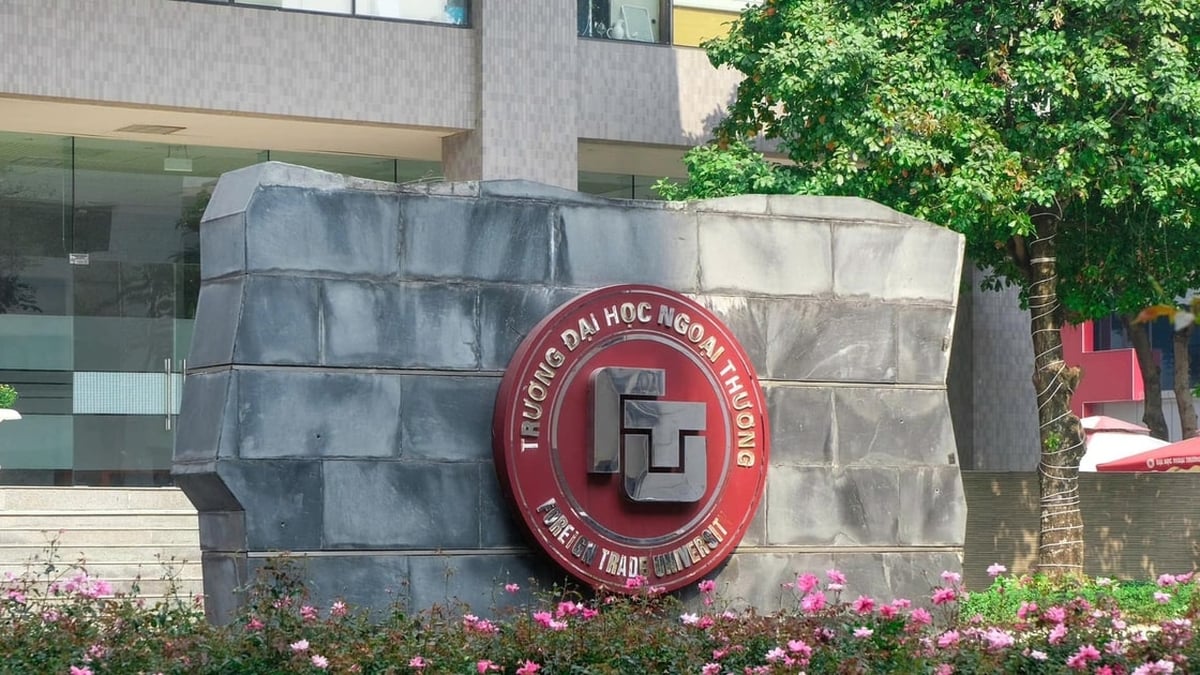





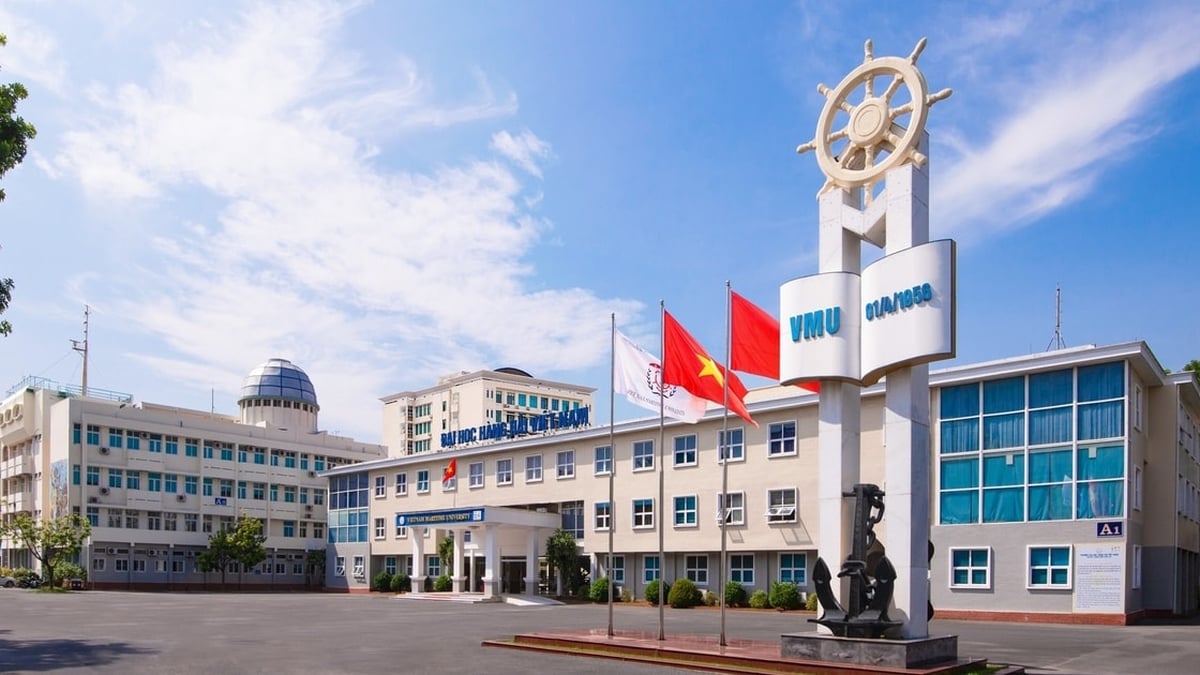






















































































Comment (0)